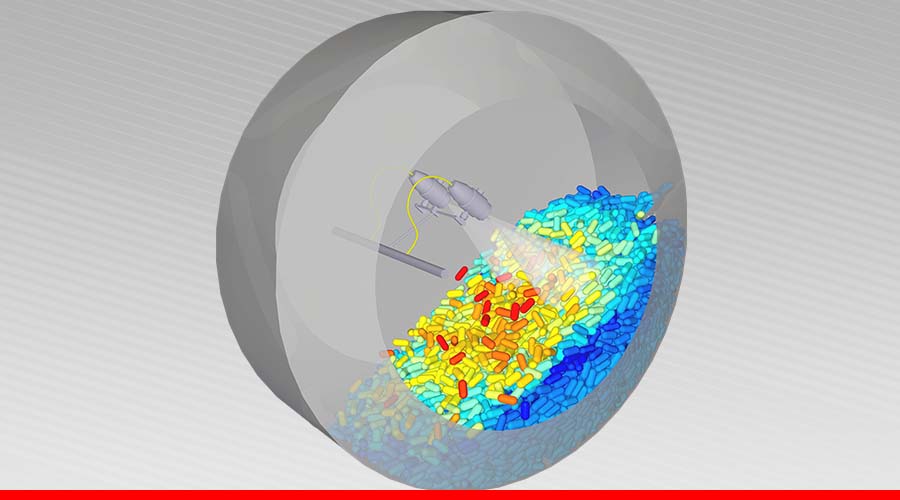
Introduction to Discrete Element Method using Rocky DEM
Subscribe now for $400.00-
Module 1 - Introduction to DEM and Basic Concepts
-
Module 2 - Workshop: Transfer Chute
-
Module 3 - Particle Shapes and Motion Frames
-
Module 4 - Post-processing in Rocky DEM
-
Module 5 - Additional Contact Force Models and Coarse Grain Model
-
Module 6 - Workshop: Static and Drawdown Angles of Repose Verification
- 6.1 Workshop 02 - Static and Drawdown Angles of Repose Verification (Setup)
- Workshop 02 – Static and Drawdown Angles of Repose Verification Part A: Project Setup and Processing
- 6.2 Workshop 02 - Static and Drawdown Angles of Repose Verification (Post-Processing)
- Workshop 02 – Static and Drawdown Angles of Repose Verification Part B: Post-Processing with Scripts
- Workshop 02 - Input Files
- Quiz 06
-
Final Considerations
Description
In this cornerstone course, you will discover how particle simulation can help define material trajectories, optimize belt tracking, extend equipment lifetime and capacity, and predict force, torque, and power consumption of equipment, enabling companies to remain competitive by designing better processes and products.
A growing number of engineers and design professionals are using discrete element method (DEM) to help understand the behavior of their particulate, bulk solids, and material handling equipment. Most materials around us start from or end up as discrete solid particles of many shapes, characteristics, and physical properties. Particulate systems and bulk material account for the majority of areas where engineers can create a meaningful impact on reducing product waste and increase material handling equipment performance.
Level: Basic
Prerequisites: None
Access period: 180 days or 360 days for Free Pass users
Software used: Rocky DEM
To access the exercises, the student must have access to the Rocky DEM software license installed on their computer.
Category: Rocky
General info
Content
- Introduction to DEM and Basic Concepts
- Particle Shapes and Motion Frames
- Post-processing in Rocky DEM
- Additional Contact Force Models and Coarse Grain Model
Objective
Participants will gain fundamental understanding of Discrete Element Method (DEM) modeling, and application of Rocky DEM to analyze results from granular and discrete materials systems.
Target audience
Industry professionals, students, and academic professors interested in improving their knowledge in simulation techniques.
Methodology
The student has the flexibility to attend the training at the most suitable time of their daily journey during the active access period. The videos, texts and exercises were previously prepared, revised and structured, allowing for the best asynchronous use.
To access the exercises, the student must have access to the Rocky DEM software license installed on their computer.
Certificate
After the completion of the course, students will receive an international certificate, in electronic format, showing that they completed the course and the number of hours they attended. The certificate is issued by the ESSS Institute. ESSS guarantees the quality of the course through its experience and recognition as a reference in Simulation.
Subscribe now
Subscribe now for $400.00